Sodium Benzoate
Your Trusted Source for High-Quality
Sodium Benzoate
What Sodium Benzoate Is
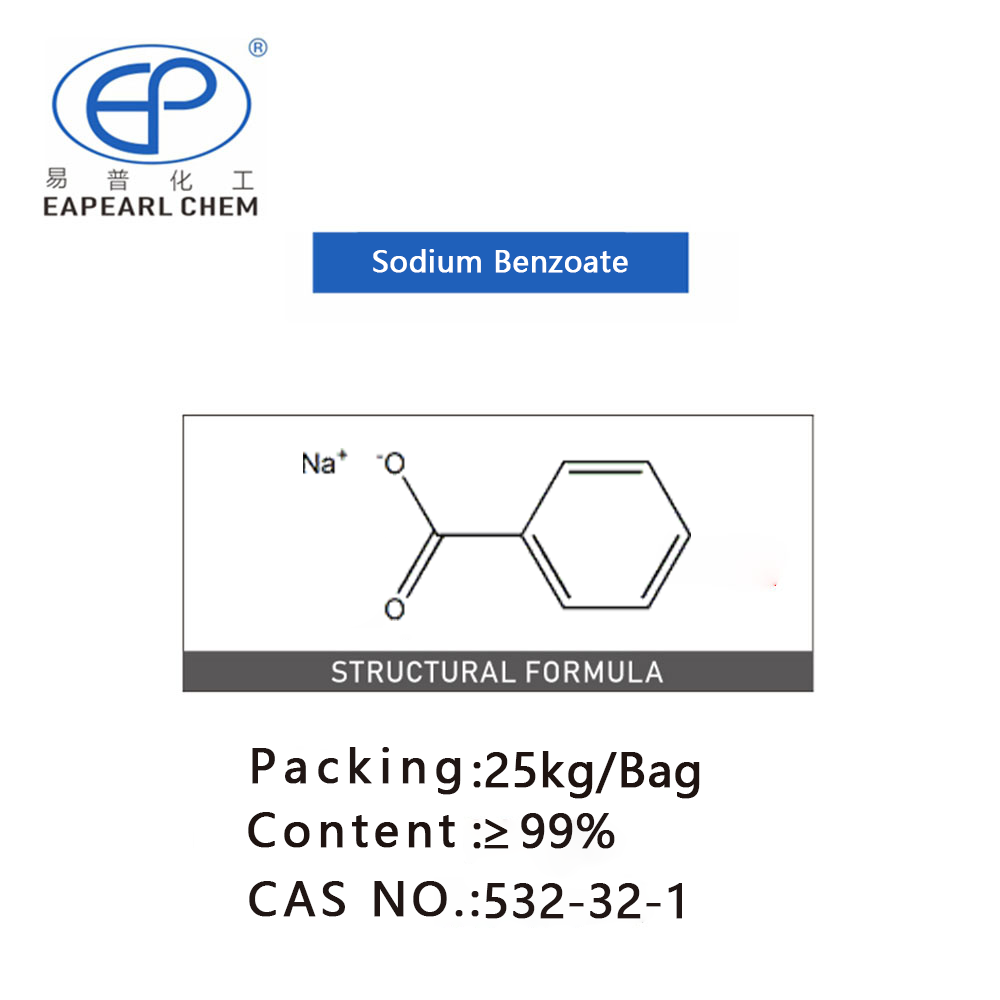

Introduction: Sodium benzoate, also known as sodium benzoate, is an organic compound. It is a white granule or crystalline powder with specific physical properties and is widely used in many fields, especially in food preservation.
Synonyms: sodiumbenzoicacid; femanumber3025; sodiumbenzoate; obenate;SODIUM BENZOATE;PUROX S; ucephan; BENZOTRON(R)
Chemical Properties: Sodium benzoate is an organic acid salt that can dissociate benzoate ions and sodium ions in water, so it is acidic. It is relatively stable at room temperature, but may decompose under high temperature, light or humid environment, resulting in a reduction in its antiseptic effect.
Reactivity and Uses: Sodium benzoate enters the cell body and ionizes and acidifies the alkali storage in the cell, inhibits the activity of the respiratory enzyme system of the cell, prevents the condensation reaction of acetyl-CoA, interferes with the permeability of the cell membrane, inhibits the absorption of amino acids by the cell membrane, and thus plays a role in food preservatives. Purpose.
Sodium Benzoate Packaging Information
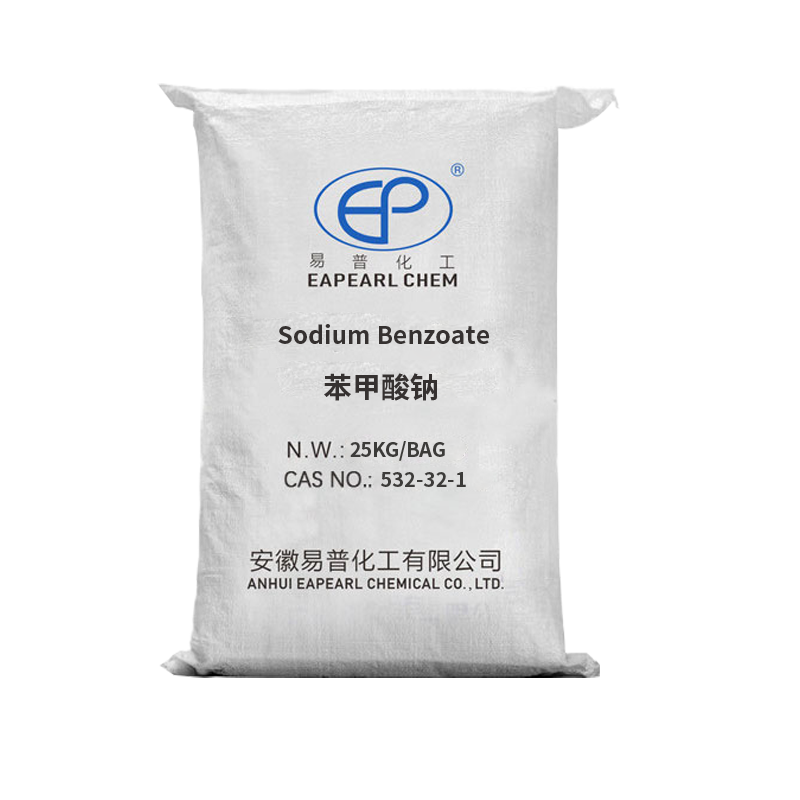

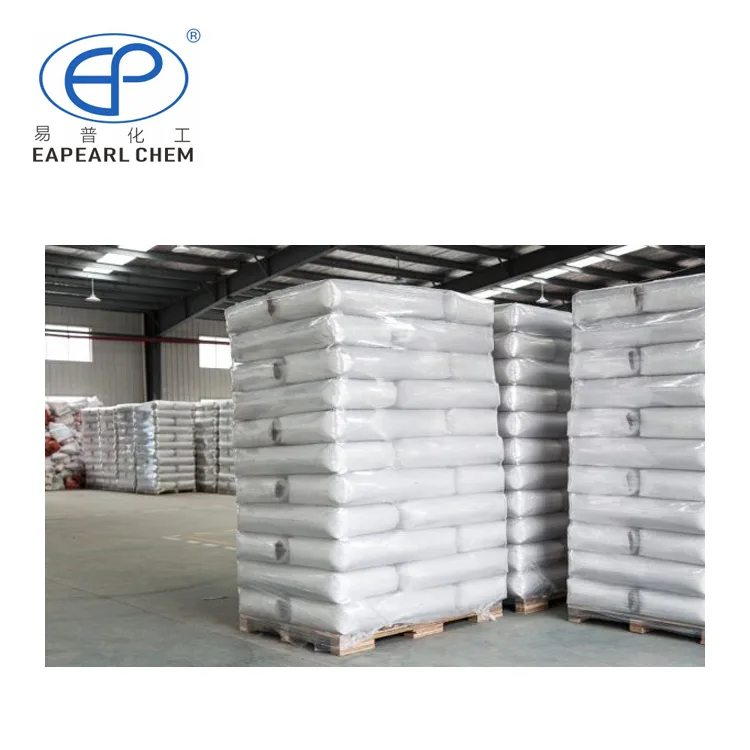

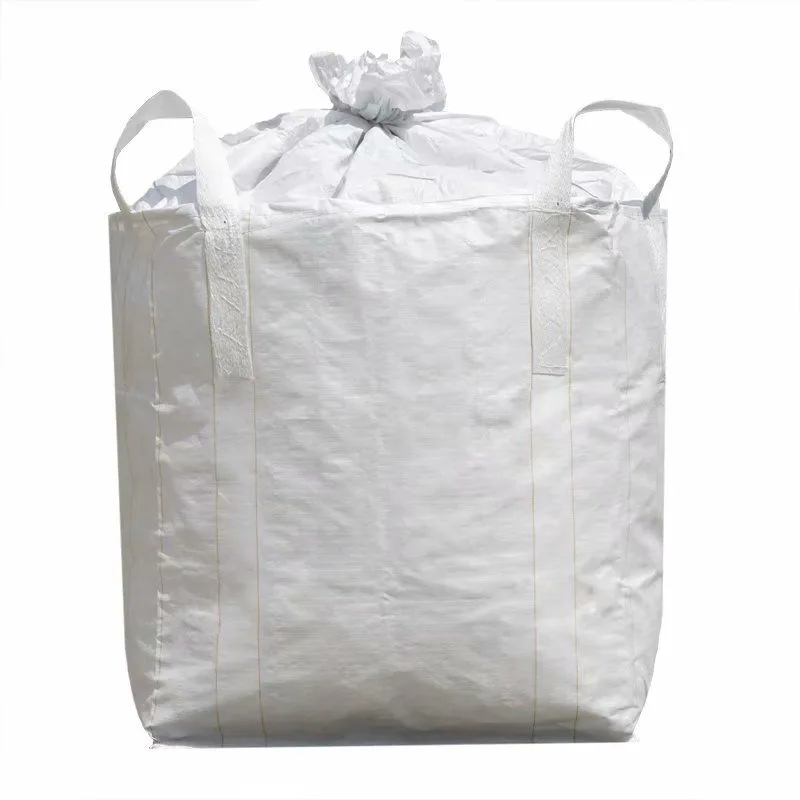

Sodium Benzoate Packaging | Capacity | 20GP | 40GP |
Bag | 25kgs/bag | total 800 bags, Net 20 Tons | total 1040 bags, Net26 Tons |
Ton Bag | 1 tons/bag | total 20 Ton bags, Net 20 Tons | total 24-26 Ton bags, Net 24-26 Tons |
The Applications of Sodium Benzoate
Pharmaceutical Industry
- Medicinal Uses: In the medical field, Sodium Benzoate is used in combination with salicylic acid to treat superficial fungal infections such as tinea manuum, tinea pedis, and tinea corporis. It is also often used as a preservative in pharmaceutical preparations to ensure that the drugs remain sterile during their use period.
Production Technology of Sodium Benzoate
Raw Materials Preparation
- Benzoic Acid
- Sodium Hydroxide (NaOH) or Sodium Carbonate (Na2CO3)
- Water
Production Process Steps
Dissolution
- Dissolve benzoic acid in an adequate amount of water to form a benzoic acid solution. Heating can be applied to accelerate the dissolution.
Neutralization Reaction
- Dissolve sodium hydroxide or sodium carbonate in water to form an alkaline solution.
- Gradually add the alkaline solution to the benzoic acid solution, allowing the neutralization reaction to occur, forming sodium benzoate and water.
Filtration
- After the neutralization reaction is complete, there may be undissolved impurities or by-products in the solution. Filter the solution to remove impurities.
Evaporation and Crystallization
- Heat the filtered solution to evaporate and concentrate it.
- During the concentration process, sodium benzoate starts to crystallize out.
- Control the evaporation temperature and concentration to obtain pure sodium benzoate crystals.
Separation and Drying
- Separate the crystallized sodium benzoate from the mother liquor, usually using a centrifuge or filter.
- Dry the separated sodium benzoate crystals to remove residual moisture.
Packaging
- Screen the dried sodium benzoate crystals to obtain uniform particles.
- Finally, package the finished sodium benzoate product for storage or shipment to customers.
Process Considerations
- Temperature Control: Proper temperature control during the neutralization reaction and crystallization process is crucial, as overly high or low temperatures can affect product quality and yield.
- Purity: Use high-purity raw materials and control impurity levels to ensure product quality.
- Safety Measures: Sodium hydroxide is highly corrosive; protective measures must be taken to prevent skin and eye contact during operation.
Quality Control
- Product Purity: Analyze product purity using chemical analysis methods, such as titration and chromatography.
- Physical Properties: Measure the product’s appearance, particle size distribution, solubility, and other physical properties.
- Safety Testing: Ensure the product meets safety standards for industries such as food and pharmaceuticals, including conducting microbiological testing.
How can we handle your order?


step 1
We will communicate with you within 24 hours after you send an enquiry.
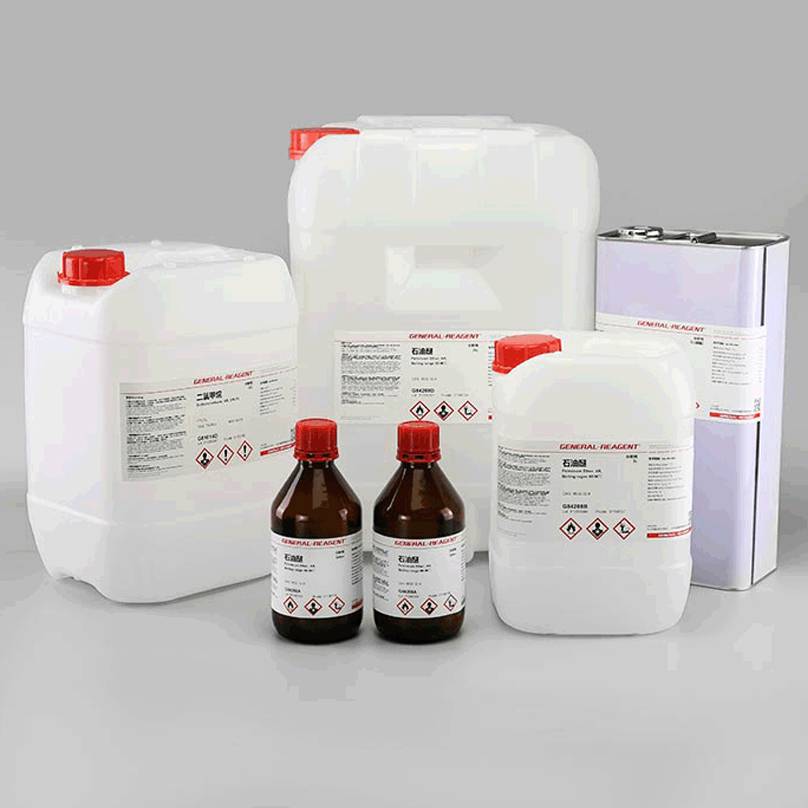

step 2
If you need sample testing, we will send samples within 5 days,≤50kg, Express delivery recommended, usually called as DDU service; delivery time 5-7 days. Door to door service.


step 3
If you need bulk goods after the sample test is qualified, we will ship the goods to the port and keep the samples within 6 days after the order is confirmed. Sea shipping recommended, usually called as FOB, CFR, or CIF service.delivery time 10-45 days. Port to port service.


step 4
After waiting for you to receive the goods, we will arrange professional staff to pay a return visit within 7 days.
REQUEST A QUOTE FOR MORE DETAILS
Sodium Benzoate Technical Data
Name | Sodium Benzoate |
Molecular Formula | C7H5NaO2 |
Molecular Weight | 144.10317 |
CAS | 532-32-1 |
Density | 1,44 g/cm3 |
Melting Point | 436 ℃ |
Boling Point | 249.3 ℃at (at 760mmhg) |
Flash Point | 111.4°C |
InChI | InChI=1S/C7H6O2.Na/c8-7(9)6-4-2-1-3-5-6;/h1-5H,(H,8,9);/q;+1/p-1 |
InChIKey | WXMKPNITSTVMEF-UHFFFAOYSA-M |
LogP | 1.88 |
Color | White |
Appearance | White crystalline powder |
Merck | 14,8582 |
BRN | 3572467 |
Odor | Odorless |
PH | 7.0-8.5 (25℃, 1M in H2O) |
Storage Condition | room temp |
Stability | Stable. Incompatible with strong oxidants, alkalis, and inorganic acids. |
Sensitive | Hygroscopic |
Physical and Chemical Properties | Sodium Benzoate appears as white crystals or granules, or colorless powder with a sweet and astringent taste. It is soluble in water, ethanol, glycerin and methanol. |
Environment and Health
Environmental Impact
Biodegradability:
- Sodium benzoate is biodegradable. It breaks down in the environment through natural processes, primarily through microbial action in soil and water.
Aquatic Toxicity:
- Sodium benzoate can be toxic to aquatic organisms at high concentrations. It is essential to manage waste disposal and avoid discharging large amounts into water bodies.
Soil Impact:
- In soil, sodium benzoate is relatively mobile and can leach into groundwater. Proper disposal practices are necessary to minimize soil contamination.
Environmental Regulations:
- Sodium benzoate usage and disposal are regulated to prevent environmental pollution. Compliance with local environmental regulations and guidelines is crucial.
Health Impact
Toxicity:
- Acute Toxicity: Sodium benzoate has low acute toxicity. Ingestion of large amounts can cause gastrointestinal irritation, nausea, vomiting, and abdominal pain.
- Chronic Toxicity: Long-term exposure to low levels of sodium benzoate is generally considered safe. However, high doses over extended periods can potentially cause liver and kidney damage.
Allergic Reactions:
- Some individuals may experience allergic reactions to sodium benzoate, including skin rashes, itching, and asthma symptoms. It is advisable to avoid products containing sodium benzoate if you have a known sensitivity.
Carcinogenicity:
- Sodium benzoate itself is not considered carcinogenic. However, it can react with ascorbic acid (vitamin C) in acidic conditions to form benzene, a known carcinogen. Regulatory agencies have set limits on the allowable concentration of sodium benzoate and ascorbic acid in products to minimize this risk.
Regulatory Guidelines:
- Food and Drug Administration (FDA): Sodium benzoate is generally recognized as safe (GRAS) when used within prescribed limits. The FDA has established maximum allowable concentrations for its use in food and beverages.
- European Food Safety Authority (EFSA): Sodium benzoate is approved as a food additive (E211) with specific concentration limits to ensure safety.
- World Health Organization (WHO): The WHO has evaluated the safety of sodium benzoate and established acceptable daily intake (ADI) levels.
Safety Measures and Best Practices
Handling:
- Use personal protective equipment (PPE) such as gloves, safety goggles, and lab coats when handling sodium benzoate.
- Ensure good ventilation in the working area to avoid inhaling dust or fumes.
Storage:
- Store sodium benzoate in a cool, dry place in tightly sealed containers.
- Keep away from strong acids, strong oxidizers, and direct sunlight.
First Aid Measures:
- Inhalation: Move the affected person to fresh air. Seek medical attention if symptoms persist.
- Skin Contact: Wash the affected area with plenty of water. Remove contaminated clothing. Seek medical attention if irritation develops.
- Eye Contact: Rinse the eyes with water for several minutes. Seek medical attention if irritation persists.
- Ingestion: Do not induce vomiting. Rinse the mouth with water and seek medical attention.
Sodium Benzoate FAQs
Sodium Benzoate is a white, crystalline powder used primarily as a preservative in food, beverages, pharmaceuticals, and cosmetics.
Yes, sodium benzoate is generally recognized as safe (GRAS) by the U.S. Food and Drug Administration (FDA) when used within prescribed limits. However, it is essential to adhere to regulatory guidelines regarding its concentration in food and beverages.
The maximum allowable concentration of sodium benzoate varies by region. In the United States, the FDA permits up to 0.1% by weight in food. It is crucial to consult local regulations for specific limits.The maximum allowable concentration of sodium benzoate varies by region. In the United States, the FDA permits up to 0.1% by weight in food. It is crucial to consult local regulations for specific limits.
Sodium Benzoate should be stored in a cool, dry place, away from direct sunlight and moisture. It should be kept in tightly sealed containers to prevent contamination and degradation.
Sodium Benzoate is effective in inhibiting the growth of mold, yeast, and some bacteria, thereby extending the shelf life of products. It is easy to use, cost-effective, and does not significantly alter the taste or appearance of the products it preserves.
To place a bulk order, contact our sales team via the contact form on our website or call us directly. Our streamlined ordering process ensures a smooth transaction.
Pricing is determined based on order quantity and current market conditions. For a precise quote, please reach out to our sales team.
Yes, we provide discounts on bulk purchases. The discount rate varies depending on the order volume.
Our standard payment terms include a 30% advance and the balance against delivery, but terms can be negotiated for long-term partnerships.
We employ rigorous batch testing and quality control processes to guarantee consistent quality in every shipment.
Yes, we offer comprehensive after-sales support, addressing any post-purchase queries or concerns.
Eapearl Chemicals stands out due to our commitment to quality, competitive pricing, reliable supply chain, global reach, and customer-centric approach, ensuring you get the best value and service.
We adhere to strict safety protocols, including regular quality checks, providing clear handling instructions, and ensuring compliance with all regulatory standards to ensure the safety of our Sodium Benzoate


